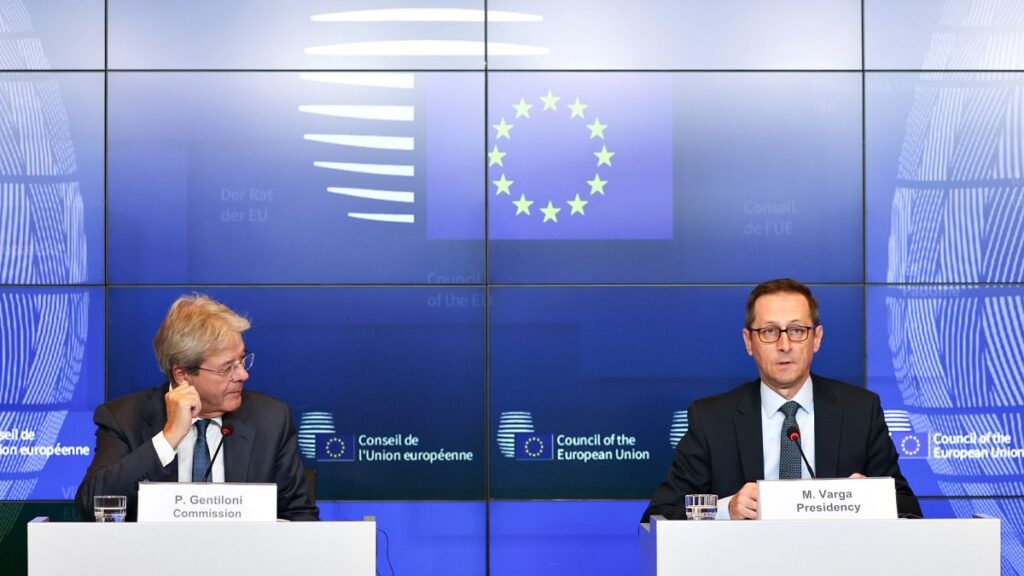The EU’s plan to raise a €35 billion loan for Ukraine involves a key change in the sanctions regime that Hungary is so far blocking.
Hungary confirmed on Tuesday that it would not back the change in the EU sanctions on Russia’s immobilised assets that G7 allies need as guarantee to issue a €45 billion ($50 billion) loan to Ukraine until after the elections in the US next month.
The G7 project is designed to use the windfall profits of the Russian frozen assets to gradually repay the money given to Kyiv, exempting allies from footing the bill.
The European Commission has proposed a contribution of up to €35 billion, depending on how much other Western allies offer to chip in.
The United States is worried about the long-term stability of the unprecedented plan, given that EU sanctions on the frozen assets have to be renewed every six months by unanimity. This means that, at any moment, one member state could prevent the renewal, unfreeze the assets and throw the entire project into disarray.
Hungary, in particular, has acquired a reputation for blocking sanctions until it secures controversial concessions, some of which favour the Kremlin’s interests.
To placate Washington’s concerns, Brussels has proposed to extend the renewal period on the frozen assets from six to 36 months.
While member states are expected to agree on the €35 billion loan in the coming days, thanks to the rules of qualified majority, Budapest says the key amendment of the sanctions regime, which requires unanimity, should wait until 5 November.
The hold-up could delay Washington’s decision on how much it is willing to contribute.
“We believe that this issue should be decided – the prolongation of the Russian sanctions – after the US elections. That was the Hungarian position,” Mihály Varga, Hungary’s finance minister, said on Tuesday after a ministerial meeting in Luxembourg.
Varga argued the two presidential candidates – Kamala Harris and Donald Trump – advocate two opposite approaches to dealing with Russia’s war of aggression and that the bloc should base its next steps depending on who the American people elect.
Hungarian Prime Minister Viktor Orbán has made no secret of its preference for Trump’s candidacy.
“We have to see in which direction the future US administration is going (on) this issue,” Varga told reporters. “You can see the presidential election and candidate campaign: there are two absolutely different ways to solve this problem. One, in the direction to peace. And (the other) continue to the war.”
The minister stressed his counterparts had had an “excellent conversation” about the €35 billion loan but that “of course, we have to wait (until) November.”
Speaking by his side, European Commissioner Paolo Gentiloni said ministers had delivered “quasi-unanimous” support for amending the sanctions regime, which he described as a “pre-condition” to enable American participation in “equal parts.”
“This is the political part,” Gentiloni said, speaking of “burden-sharing” among G7 allies.
The Commissioner noted an agreement is “possible” during Wednesday’s meeting of EU ambassadors in Brussels. Hungary currently holds the rotating presidency of the Council of the EU and is tasked with moderating the session.
This article has been updated to clarify the element that Hungary is blocking.
Read the full article here

